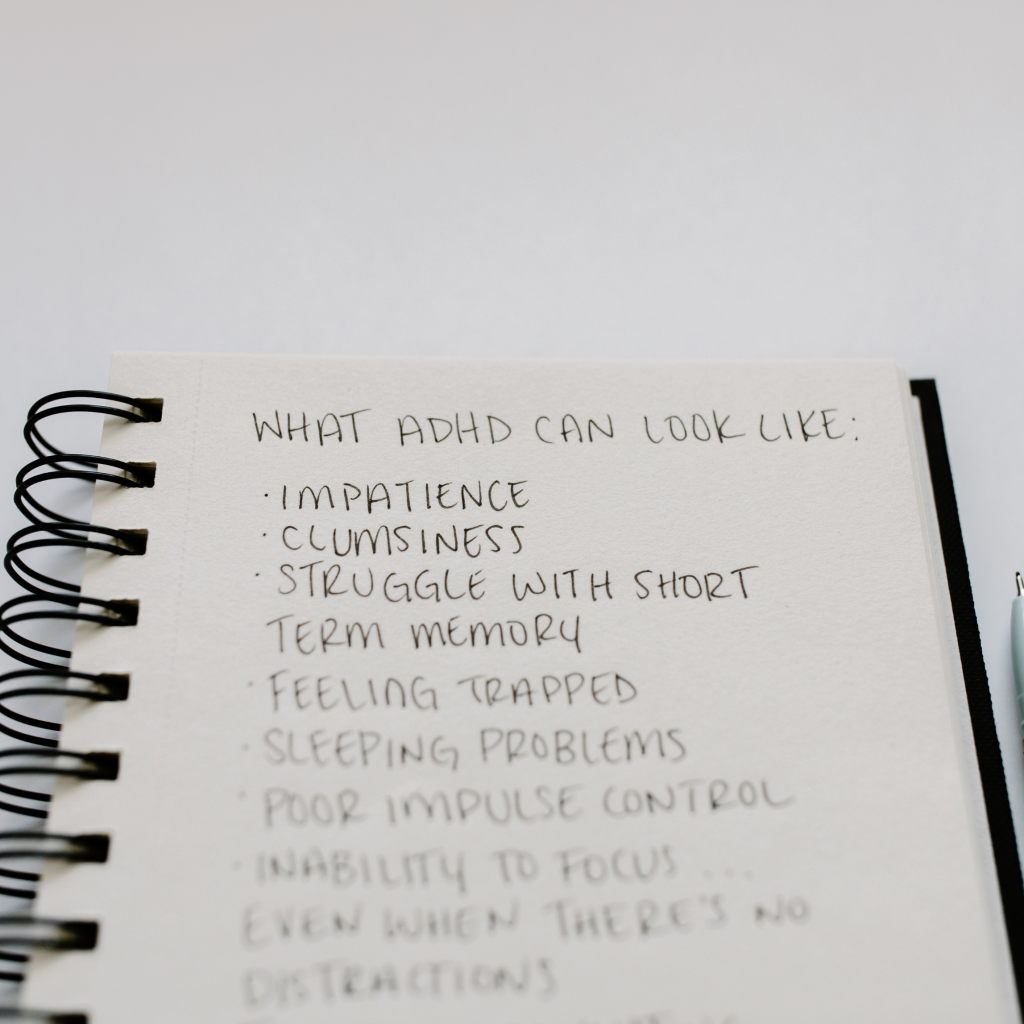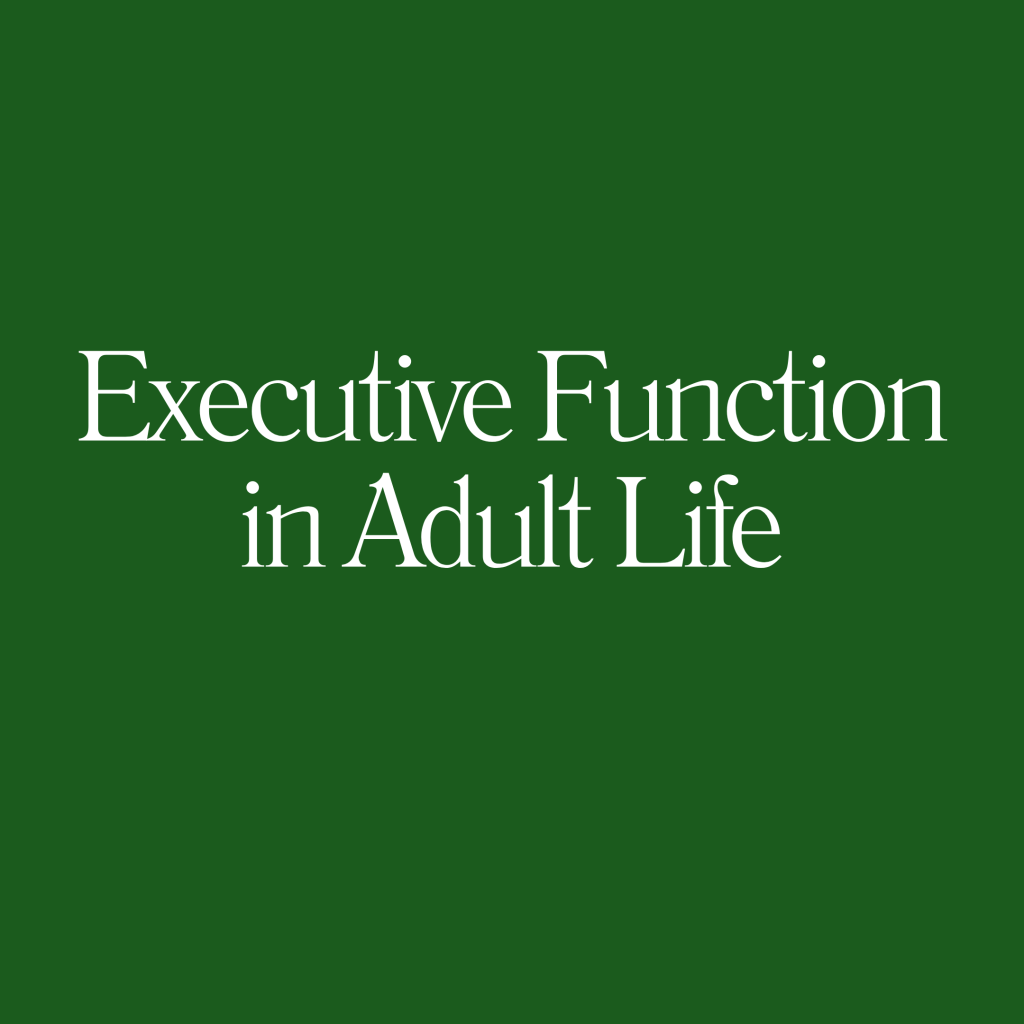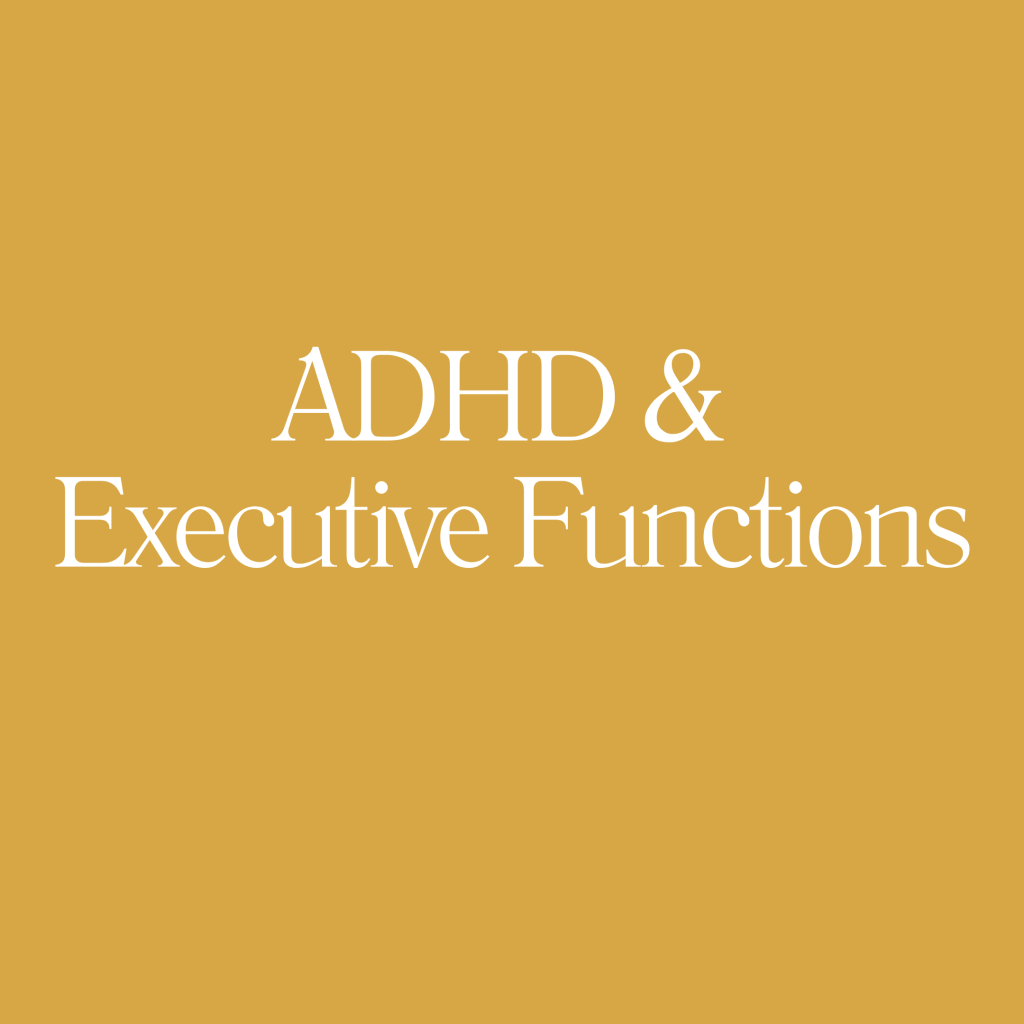Your Next Steps When You’re Diagnosed With Or Suspect You Have ADHD
I’ve witnessed the relief of feeling seen, of knowing your life-long struggles and experience have a name when you are diagnosed with ADHD as an adult. I’ve also heard the flurry of questions that often follows this diagnosis.
Today I want to write for those who find themself in the newly diagnosed/suspected ADHD group. If you are wondering what comes next, I’m going to give you a little roadmap.
Step 1: Let the Feelings Settle
Before you start consulting Dr Google for treatment options, just pause.
A diagnosis, whether official or self-recognised can stir up a cocktail of emotions:
Relief: Finally, an explanation for years of feeling “different.”
Grief: For the time lost, the misunderstood struggles, the “if only I’d known.”
Anger or regret: At teachers, parents, systems that missed it.
Hope: For a future with new tools and understanding.
All of these reactions are valid. Give them space.
Journal.
Talk it out with someone safe.
Cry if you need to.
This is the beginning of your journey to self-compassion.
I often suggest clients write a letter to their younger self, thanking them for how hard they worked with the information they had. It’s a powerful way to release hidden shame.
Step 2: Learn the Science Without the Jargon
Knowledge really is power.
So here are some foundational science facts about ADHD:
- ADHD isn’t a character flaw or lack of willpower. It’s a difference in how the brain’s executive function system the “CEO” that manages time, focus, planning and impulse control operates.
- Dopamine: This brain chemical is tied to motivation and reward. ADHD brains often need a stronger “spark” of interest or urgency to get started.
- ADHD is lifelong. It doesn’t vanish in adulthood; we just develop coping mechanisms.
- ADHD shows up differently in everyone. No two ADHD profiles are identical.
Sort fact from fiction. Spend time with reliable sources that are evidence-based.
Learning the science can be incredibly freeing: it turns “I’m lazy” into “My brain is wired for novelty and needs a different strategy.”
Step 3: Build Your Support Team
You don’t have to figure this out solo.
Your “team” might include:
- Healthcare professionals: A doctor or psychiatrist can discuss medical treatment if you’re interested. Medication isn’t for everyone, but for some it’s transformational.
- Therapists or counsellors: Helpful for unpacking past experiences, especially if you carry shame or anxiety.
- ADHD coach: This is where I sit, a partner in creating personalised strategies and helping you build habits that suit your brain.
- Support groups or peer communities: Online or local, these can normalise the journey and spark brilliant idea-sharing.
Think of it as building your personal board of directors, people who understand ADHD and can help you navigate life with it.
Step 4: Identify Your Strengths
ADHD often comes with incredible gifts; creativity, intuition, problem-solving in a crisis, infectious enthusiasm.
In my coaching sessions, we spend time spotting these strengths because they’re the foundation of every strategy.
Questions to ask yourself:
When have I felt “in the zone” or lit up by a project?
What do friends or colleagues consistently praise me for?
Where have I solved problems in a way that surprised even me?
Write these down. They’re not fluff—they’re the assets you’ll build on.
Step 5: Start Small With Daily Wins
You don’t need to overhaul your entire life next Monday.
Instead, pick one micro-habit something so small it almost feels too easy.
Some client favourites:
A 10-minute daily reset: Tidy one surface, check tomorrow’s calendar, breathe.
Two-minute rule: If it takes less than two minutes, do it now.
Morning anchor: One non-negotiable action (stretch, glass of water, jotting a priority) before checking emails.
Tiny wins build momentum and confidence, two things ADHD brains love.
Step 6: Create External Supports (also known as “Scaffolding”)
ADHD brains are brilliant but not always built for self-management.
Think about:
Visual cues: Whiteboards, sticky notes, phone reminders.
Body doubling: Working alongside a friend or virtual coworking space for accountability.
Environment tweaks: A basket by the door for keys, a standing file for urgent paperwork.
These are the kind of creative engineering ADHD minds excel at.
Step 7: Rethink Self-Care as Survival, Not Luxury
This is where my doctor and coach hats overlap.
Sleep, movement, nutrition, downtime aren’t “nice extras.” They’re brain fuel.
ADHD brains burn through energy quickly. Regular movement (yes, even a brisk walk), consistent sleep, and balanced meals stabilise mood and attention far more than most people realise.
Start with the easiest. If eight hours of sleep feels like climbing Everest, begin by dimming screens 30 minutes earlier. Small changes add up.
Step 8: Communicate With Your Close Circle.
ADHD affects relationships and transparency can turn friction into teamwork.
You might say:
“Sometimes I hyperfocus and lose track of time; can you nudge me when dinner’s ready?”
“If I forget something we discussed, it’s not because I don’t care. Could you put it in a text?”
Clear, compassionate conversations set realistic expectations and reduce misunderstandings.
Step 9: Expect the Journey Won’t be a Straight Line
Progress with ADHD isn’t a neat upward graph. There will be days when you feel unstoppable and days when the wheels wobble.
That’s normal. It’s not failure, it’s feedback.
When you hit a bump:
Pause and notice what threw you off.
Adjust without judgment.
Try again, maybe with a slightly different tool.
Step 10: Be Hopeful
The main message I want to give you in this post is this: ADHD is not the end of the story.
With awareness, support, and tailored strategies, many clients go from barely keeping up to thriving in careers, relationships and personal dreams they once thought were out of reach.
A diagnosis is your a map. And you now hold the compass.
When you are ready for more personalised support, I’d love to walk alongside you.
You can book my free ADHD Life Audit to explore how ADHD coaching can help you continue to turn self-understanding into practical, life-changing action.
.





